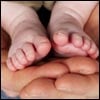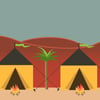Dear Rabbi,
What is the Jewish take on peeking? Can I peek through someone’s window? I have this great new pair of binoculars, and it’s extremely tempting to have a good look into my neighbors’ houses. Please shed some light…
Answer:
Shortly after the Israelites became the Jewish nation at Mount Sinai, they were praised for their strong sense of privacy. Ironically, this praise did not come from an admirer, but from the wicked prophet Baalam who actually wished to curse the Jewish nation at the request of Balak, the king of Moab. In a surprising turn of events, Balaam instead began to sing the nation’s praises:
Balaam raised his eyes and saw Israel dwelling according to its tribes, and the spirit of G‑d rested upon him… How goodly are your tents, O Jacob, your dwelling places, O Israel! (Numbers 24:1-4)
Our sages explain what he saw1 that made a strong impression on him:
Their tents were not pitched facing each other, where one could see into the other’s tent. Therefore he said: These are people that deserve G‑d’s presence to rest among them.2
Modesty, keeping our privacy, is something we strive to implement in Jewish life. What we do at home, or in our private lives, does not need to be seen by others. In fact, gossip often stems from something seen or overheard that is misunderstood. It is extremely important to recognize and maintain boundaries, both physical and virtual. This includes protecting the other person’s privacy.
Is It Prohibited?
However, while the Jewish nations were praised for their action, is it prohibited in Jewish law?
From the codifiers of Jewish law, it is clear that it is. This is the summation of one codifier, “Even if there is no doubt that viewing another’s residence will not cause physical damage, one is not allowed to look there without explicit permission, for maybe that person does not want people to know of his workings or doings.”3
In Jewish law, “peeking” is categorized as “damage from vision,” and is included in the laws of damages. But if no physical damage was done to the property, how can it be categorized as such?
The sages explain that the damage incurred refers to a person not feeling comfortable on his own property – or on parts of it. If a person fears being watched, he may feel restricted from using certain places, even in his own home.4 An additional explanation: The Talmud states that blessing is found “only in something that is hidden from the eyes.”5 Therefore one who makes something public without permission may be removing the blessing from it, thus causing damage.6
To sum it up, just as one should not enter another’s home without permission, one should not look into another’s home without permission. A person may technically be on his or her own property, but climbing a tree and looking with binoculars into the neighbor’s living room is still an invasion of privacy!
So, enjoy your new binoculars – just look at the birds or the stars.
See Privacy and Modesty from our selection on Tzniut: “Modesty” in Dress & Behavior.






Join the Discussion